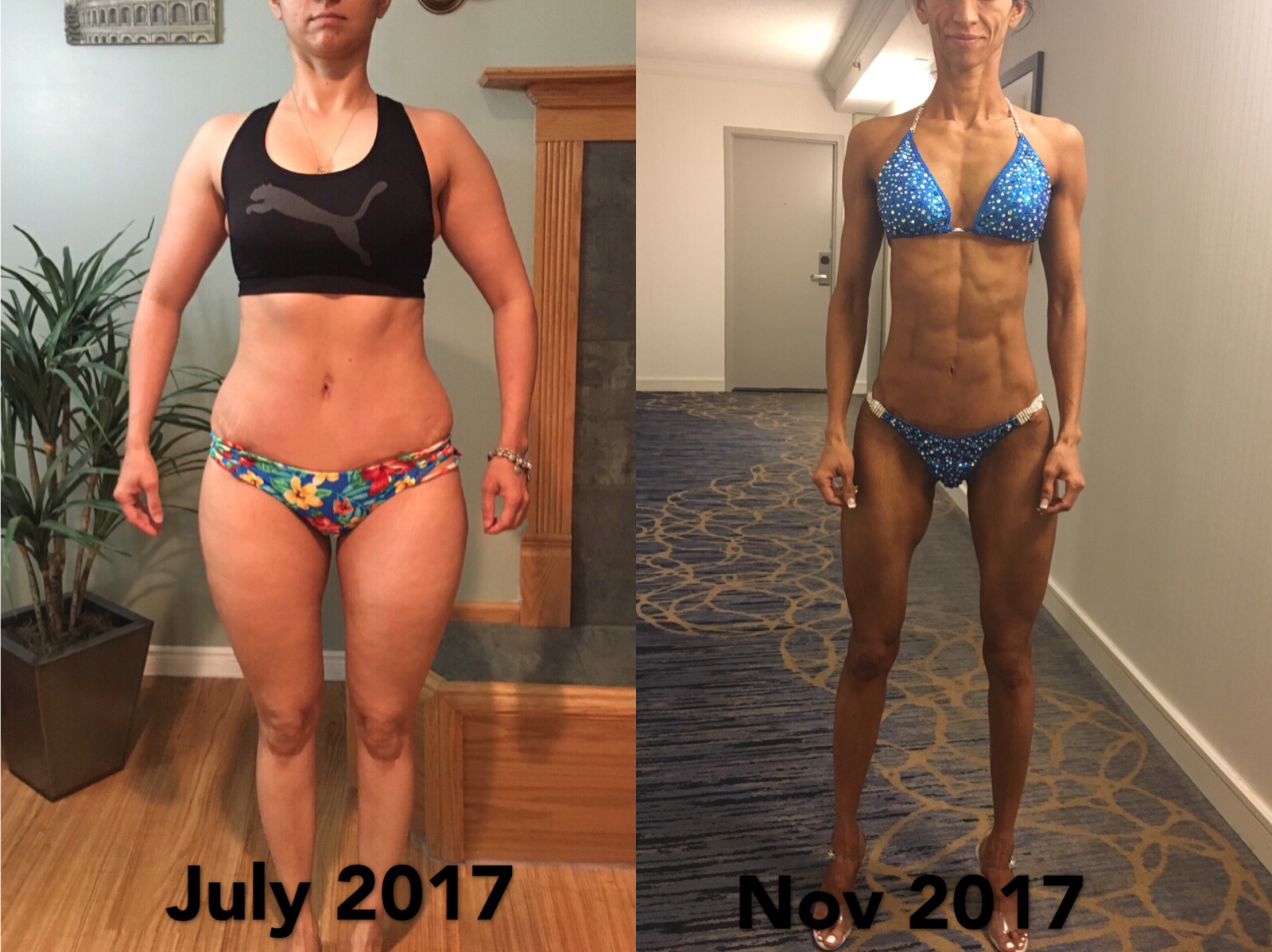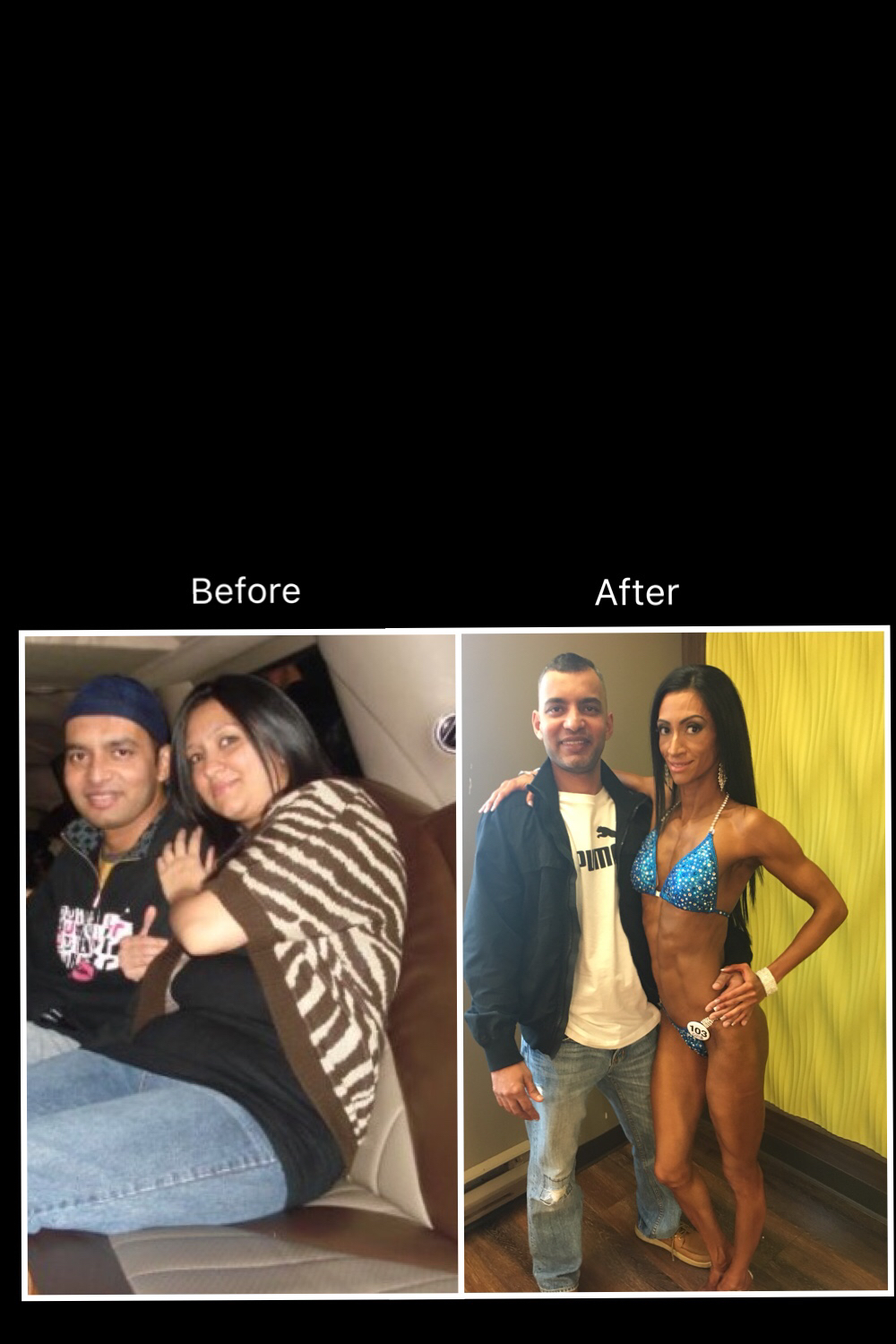Greatist Launches a Movement To Help Expose Unhealthy Thinking About How To Get Healthy - Join the Movement!
"Healthy" has been co-opted by celebrities and 1-percenter lifestyle gurus as entertainment, and it's become about expensive athleisure and matcha detoxes instead of what's real for everybody. Greatist, a fast-growing health media company attracting eight to ten million millennials monthly, announced today that they have launched #HealthyForEveryBODY.
This program is aimed at exposing unhealthy thinking about how to get healthy, replacing it with confidence-boosting mantras. Greatist is encouraging consumers to stand with them as they say, "F*ck trying to be perfect. Just try." There are more than twelve different social graphics that debunk unhealthy attitudes in the same honest, provocative, and humorous voice that has made Greatist so popular. Here's how you can stand with Greatist and show your commitment to real health for the 99 percent:
- Visit www.Greatist.com/HealthyForEveryBody
- Share one of the pre-designed mantras on social media using #HealthyForEveryBody
- Discover how healthier happens when you have the confidence to know healthy isn't about trying to be perfect or following fads, it's about trying.
"We ground everything we do in ideas that are accessible to real people—and we speak to millennial men and women like me who want to get healthy, but still have a life and friends," said Derek Flanzraich, Founder and CEO of Greatist. "The idea is that health and fitness can be a part of living a better, longer life but doesn't have to be the whole point."
Greatist provides realistic, achievable ways to get "healthyish" across content categories including healthy cooking, exercise, and personal journeys. Greatist has approximately 40-thousand people using their chart-topping Facebook Bot, and early next year will be releasing an app dedicated to pairing up like-minded groups of people who share in a similar health journey.
To my clients and my readers seeking a healthier lifestyle: find what works for you! You don't have to go to the gym every single day. You don't have to cross the finish line first. Would it be nice to win? Of course! But start with the small changes to get on your own path to healthy. Just get to the gym. Just cross the finish line. We can do this together! Let's team up to make decision based on what works for you. Check out some of the programs I offer to get started today:
http://www.trainitright.com/programs/MANAGING CURLS!!??The DOUX is A MUST DO!
New Hot Hair Care Line Drops at Target THIS Christmas Eve

Get ready to “drop the mic” on the beauty aisles at Target stores this December. The Doux® (pronounced The Do) is a “new school” modern hair care system with an “old school edge.” With packaging that is bold and bright and product titles inspired by 90’s hip hop, The Doux is poised to kill it with those seeking a way to smoothing curly, kinky, and wavy hair into both, curly or straight styles.
Created by Maya Smith, a 25-year celebrity stylist and International Curl Master, The Doux was first launched in Europe in 2011 in response to her passion for helping people master the hair they were born with. STRAIGHT, NATURAL, CURLY, or RELAXED, according to The Doux, if you grew it, it’s ALL GOOD. “I was living in Germany at the time, had my own salon there and my specialty was helping clients to transition to a relaxer-free lifestyle. I’m obsessed with people maximizing the potential of the hair they were born with. Mastering curls is my passion and purpose,” explains Smith.
The people felt her passion through her products. The Doux blew up overseas so much so that it caught the attention of media in the USA. “Once we started getting press in the states the demand for The Doux was incredible. I had to return to the states and see this vision through,” Maya Smith explains. In 2014, Maya opened The DOUX Salon™ in Macon Georgia’s historic Downtown district and started selling her professional grade products at her salons and on-line.
Fast-forward three years and a lot of work and dedication, The Doux will arrive in Target stores, on Christmas Eve; no easy feat for an indie brand. “We are so excited to bring The Doux to the masses. It’s 20 years in the making. We listened to 20 years of feedback from actual clients from Minneapolis to Morocco. We listened to what people wanted, a salon grade, high quality product that delivered on its promises. Helping people to manage and maintain their natural hair and celebrate their own bold, unique style is what the last 25 years of my professional life has been about,” Maya Smith shares.
The Doux also redesigned its packaging, with the intention to disrupt the category. It’s bold with bright colors, which is the opposite of the more subdued look you see on the shelves currently. “I’m a fan of 90’s rap so I wanted to incorporate lyrics and titles in the packaging,” adds Smith. With titles such as Bonita Afro Balm, Mousse Def, Sucka Free, Fresh Rinse, and The Light, The Doux will most definitely catch the eyes of Millennials and Gen X’ers alike.
THE PRODUCTS
Shampoo and Conditioner
*SUCKA FREE™ Moisturizing Shampoo, *FRESH RINSE™ Conditioner
Sulphate & Paraben-free Shampoo and Conditioning Duo with Shea Butter & Sea Silk. A gentle cleansing system for thick, dry, or color-treated hair. Ultra-hydrating conditioner has amazing slip for easy detangling. Sea silk smooths the cuticle, leaving hair frizz-free and full of body. MSRP: $12.99 each.
Stylers:
*BONITA AFRO BALM™ Shine Enhancing Texture Cream Delivers shine and manageability for pixies, Afro's, tapered cuts, and twist/braid/coil sets. Certified organic botanicals, alcohol & paraben free. MSRP: $15.99.
*MOUSSE DEF™ Texture Foam Non-flaking mousse gives definition to curly styles without stiffness, cloudiness, or crunch. Soy proteins and natural humectants make this humidity-resistant styling aid ideal for thermal styling as well. MSRP: $14.99
*THE LIGHT™ Shine Mist Preserves color and protects hair from heat styling. Reduces drying time and delivers weightless shine to finished looks. Adds natural luster to natural styles. Infused with Black Cacao, Passion Fruit, and Palm Oil. MSRP: $14.99.
Window Aquatica.
Grow fresh, organic herbs in any space! Window Aquatica is a mini-ecosystem, where the fish waste feeds the plants and the plants clean the water. This is simply the easiest and most economical way to have fresh organic herbs all year round.

Best of all, Window Aquatica lets you enjoy your aquarium and garden, without all the stress/labor. No need to clean the tank or water the plants; the self-contained system makes growing herbs at home easier than ever before. The fish waste provides plants with the necessary nutrients to grow, and the plants clean the tank by absorbing the fish waste.
Window Aquatica is available on Indiegogo. Early Bird pricing starts at $70.00.
The holidays are quickly approaching and everyone is scrambling to find the perfect gifts for their loved ones. Whether they are looking for a gift for the tech lover or the fitness fanatic, there is something on this list that will bring them joy this holiday season.
I have provided product descriptions down below. Please let me know if you need additional press materials and I would be happy to provide. Thank you for your time and I look forward to hearing from you soon!
Company Name: i-BLADES
Product: i-BLADES Smartcase

Website: https://i-BLADES.com/
Product Description: An award-winning protective Galaxy S8, S8Plus and Note 8 case with built-in technology that allows you to do more. The i-BLADES Smartcase with removable battery and memory Smartblade is the world's first Smartcase that wirelessy adds +10 hours of talk time, up to 64GB of extra storage and monitors the air quality around you with the state-of-the-art 4-in-1 Enviro Sensor™ embedded inside the Smartcase. Weighing 40g and a slimline 12.33mm, the i-BLADES Smartcase and Smartblade is the smartest phone case for Samsung Galaxy users this holiday season.
Price: $79 to $129
Company Name: SoundWhiz
Product: Turbo Wireless Running Headphones
Website: https://www.soundwhiz.com/
Product Description: The Turbo Wireless Running Headphones by SoundWhiz deliver incredible HD sound that can take any workout to the next level thanks to crystal clear 10mm drivers. The Bluetooth enabled headphones feature a sound profile specifically designed to enhance performance by boosting the body’s rhythm center during sports and activities. The Turbo Wireless Running Headphones ergonomic design combines high quality sound with stability and comfort that allows users to zone in to peak performance. The Turbo headphones are made using a nanocoating process that ensures they are completely protected against sweat, rain, and accidental immersion. Equipped with a long lasting battery, the Turbo headphones deliver up to 8 hours of talk of play time and take only two hours to be fully charged. In addition, the headphones support voice commands on both Apple and Android devices.
Price: $35.99
URL: https://www.amazon.com/Wireless-Bluetooth-Running-Headphones-Waterproof/dp/B01FS01SVG/ref=sr_1_1?ie=UTF8&qid=1504638866&sr=8-1&keywords=soundwhiz&th=1
Company Name: Brinno
Product: SHC500
Website: http://brinno.com
Product Description: Brinno has released the first in its next generation of front door cameras with one of the best image qualities to date. The SHC500 Digital Peephole Camera records visitors without their knowledge thanks to its conspicuous design. The images or videos are recorded and stored on a micro SD card. The bigger the SD card, the more images or video you can store (supports up to a 32GB card). Replay who was at the door on the 2.7" LCD screen with the push of a button, or remove the SD card and review your activity on your PC or tablet. A set of AA batteries (included) are good for 3,000 activations. Review each day’s images or videos with a simple button push. The new user-friendly menu makes it quick and easy to see who was at the door. Every image and video comes with a time and date stamp so you know who was there and when they were there. Like all Brinno Peephole Viewers and Smart Home Cameras the new SHC500 takes 5 minutes to install and is impossible to detect from outside the door.
Price per Unit: $219.99
Website Link: http://brinno.com/time-lapse-camera/TLC200Pro
Company Name: Witti
Product: ROSSI
Website: www.wittidesign.com
The ROSSI by Witti Design is the perfect gift for that friend who is obsessed with chakra crystals and green juices.
The USB powered aromatherapy diffuser features multicolored LED mood lighting making it the perfect gift to turn any room into an oasis.
Price Per Unit: $29.99
Link to Purchase: https://www.wittidesign.com/products/rossi?variant=40753222602
Reduce Stress and Give the Gift of Relaxation this Holiday Season with
The AiroSpa™ Pillow
Los Angeles, CA—November 1, 2017—With the gift buying/giving season right around the corner, the annual struggle as to what to get that friend or significant other will confront many shoppers. This year, buyers can give the gift of relaxation and help those important to them relieve stress with the AiroSpa™ Pillow, www.airospapillow.com.
It’s no secret that stress and its physical and emotional impact may be the nation’s #1 hidden health issue. A recent CBS News study found that more Americans than ever before are stressed and depressed. The study found a full 8.3 million or 3.4% of the entire population suffer from serious psychological distress.
The AiroSpa™ Pillow is one of the simplest and most affordable solutions to the stress challenge and a solution to the gift-giving conundrum.
The AiroSpa™ Pillow is a unique, simple to use, affordable, multi-purpose stress reliever and aromatherapy pillow that can be enjoyed at home and while traveling anywhere. With its built-in and patented fan, airflow vents and face-down angled construction, the AiroSpa™ Pillow can be used as a home/office/travel massage experience enhancer with a partner or all on its own for a calming and relaxing experience.
The AiroSpa™ Pillow and its patented fan disperses a relaxing aroma from each of the inclusive pure-essential oils that produces advantages ranging from calming stress relief to a reduction in neck and shoulder pain to improved posture. Other benefits include a reduction or resolution to snoring, and enhanced breathing. It also makes for a fantastic massage and aromatherapy experience.
“The face-down positioning of the AiroSpa™ Pillow definitely helps relieve neck and shoulder pressure. Combined with its relaxing aromas produced from the essential oils and dispersed by a clever internal fan system, that position helps keep the sinuses and breathing passageways clear. Overall, this produces a truly positive and relaxing feeling,” said Julie Danaher, Licensed Massage Therapist, West Palm Beach, FL. “It’s compact, portable and easy to use so it’s beneficial as a personal massage tool or simply for relaxation.”
The AiroSpa™ Pillow comes complete with a simple to inflate, padded, face-down pillow, a patented insertable fan to provide air flow and to disperse the pure-essential oils that all comes neatly packaged.
The entire set retails for $29.95 plus shipping and handling and includes three pure essential oils (Lavender, Chamomile, Geranium). For a limited time this holiday season, the AiroSpa™ Pillow will come with three additional pure essential oils (Jasmine, Rose, Ylang-Ylang), normally a $30 value, at no extra charge.
“If you close your eyes when enjoying the AiroSpa™ Pillow you can feel a gentle breeze that caresses your face. It makes me feel like I’m relaxing in an imaginary fragrant garden, no matter where I’m actually using it,” says Tom Cheng, Inventor and Founder of the AiroSpa™ Pillow. “I enjoy it for a few minutes each and every day in my office.”
Consonant Skincare Launches:
Maximum Glycolic Meta Serum™
The innovative new product transforms skin without irritation
Toronto, ON – Consonant, Canada’s leading line of premium natural skin care introduces a new high performance product, Maximum Glycolic Meta Serum™, to its collection. The serum boasts the maximum allowable concentration of glycolic acid in an over-the-counter serum in Canada, but is clinically proven to be 100 per cent non-irritating and ideal for sensitive skin.
Specially formulated to exfoliate to reveal smoother, brighter and firmer-looking skin, Maximum Glycolic Meta Serum retails for $60 CAD and USD, and is available at ConsonantSkincare.com, sephora.ca, Consonant Skincare stores and select retailers starting December 4, 2017.

Consonant Skincare’s new Maximum Glycolic Meta Serum
Photo Credit: Consonant Skincare
When used regularly, this powerful serum dissolves the bonds that prevent dead skin cells from being sloughed away; at the same time loosening dirt, makeup and clogged pores to reveal clearer, healthier and younger looking skin. The Meta Serum is also clinically proven to minimize the look of fine lines, brighten skin and add hydration.
“We are extremely proud of our innovative formula and how it transforms your skin naturally with little to no irritation,” said Bill Baker, founder of Consonant Skincare. “By nature, glycolic products are irritating due to their low-pH level, however, our Maximum Glycolic Meta Serum boasts four all-natural botanical extracts to soothe skin and minimize or eliminate irritation altogether. The hydrating and firming properties are all added benefits.”
A clinical trial revealed overwhelmingly positive response to the Maximum Glycolic Meta Serum:
- 100 per cent of clinical trial users experienced no burning sensation or redness – a rarity with glycolic products with the maximum concentration of glycolic
- 95 per cent reported smoother, softer skin
- 95 per cent saw no tightness or dryness to their skin
- 90 per cent reported skin was more hydrated
- 85 per cent claimed skin was firmer, more elastic and supple
Maximum Glycolic Meta Serum is available at ConsonantSkincare.com, sephora.ca, Consonant Skincare stores and select retailers beginning December 4.
About Consonant Skincare:
Located at 2479 Yonge St. in Toronto, all Consonant Skincare’s 100 per cent natural products are created and produced in Canada, and are made with the highest possible concentration of organic botanical ingredients. They are formulated to work in harmony with the body’s natural chemistry to improve the health of skin over time, rather than just covering up irritating symptoms. Skin appears firmer, healthier and younger without the use of synthetic ingredients such as parabens, sulphates, petroleum ingredients, phthalates and silicone.
Website: www.consonantskincare.com
Twitter: @Consonant
Facebook: /ConsonantLife
Instagram: @ConsonantLife
Hashtag: #ConsonantSkincare
Hey guys! I definitely need to update my transformation photo page on my site. However. If you guys want to see some amazing transformations check out my instagram fee: www.instagram.com/trainitright
For now I want to share my clients Sue's journey through her words and photos below. Hopefully it inspires you to be the best version of yourself that you can be, chase after your dreams and not to let anything stop you!
"My Journey!
Not a lot of people know about me and my journey, I am getting a lot of messages regarding my transformation ,what motivated me and how I got into fitness so here I am sharing with you my journey .
Let me introduce myself, I am married and have 2 kids age 13 and 8. Just like a lot of busy mommies out there I hardly made time for myself , I was always busy with my full time job and taking care of my family . I ate unhealthy food and never went to the gym my excuse was I don’t have time, I was over weight . In 2010, when I was going through my old pictures I realized how much weight I have gained. I missed how I looked in high school and it was then the first time a thought to lose couple of lbs , so I joined a near by gym and followed some random diet plan from the internet. At the gym when I use to see fitness competitors I just wished I had their physique they always inspired me and I wished I was one of them , but then I knew it was not possible, too many obstacles my background, young kids , culture, and I knew my family would never support me. In 2011 I managed to lose some weight however, didn’t follow a proper diet nor a workout plan just random online plans. I continued eating healthy and going to the gym.
In November 2015, a thought “why can’t I compete, if they can do it why can’t I “ haha I had no clue what the process was , had no coach, didn’t know how to walk in heels and never went to see a show . I did not know where and how to start yet, I set a goal for myself that I will compete. I wanted to do something for me , I wanted to take a challenge and prove my self and wanted to follow my dreams.
Initially I wanted to do a show in 2016 started the process and within 2 months I dropped out due to medical and health reasons . It was a set back, took a long break from the gym and diet however that didn’t stop me , I couldn’t wait to get back to the gym and start training . All I could think of and dreamed about was the stage. In 2017 I decided that this year will be my year and I will do what ever it takes to reach my goal.
I had few coaches and was not happy with them . Then in July 2017 , A friend of mine referred me to Team Trex, after meeting Alicia I just knew I found my coach, now I have all the right tools and I can do this , I felt pretty confident. Alicia gave me the right training, motivated me and gave me the right support and guidance that I was looking for . She really cared about me , always checking in making sure I am following the plan and were on track.
I use to hit the gym twice or sometimes three times a day , work full time, participate in all my kids activities, do my meal prep on Sundays and my one on one training sessions with my coach twice a week which was 1-2 hrs of commute .
I have made many sacrifices as they say nothing comes easy , so many hardships and life curve ball thrown at me I overpowered them all . I also lost my job when I was 8 weeks out from my show , it hit me hard yet, I didn’t give up. My biggest supporter is my husband, and a million thanks to this man for the amount of love and support I received from him through the entire prep. I still remember when I first told him “hun I want to compete “ he just looked at me nodded his head and walked away.. lol he thought I was out of my mind, I am in my mid 30’s , mother of two, not in the greatest shape , don’t have a coach, plus it was a culture thing so wearing a bikini and walking on the stage was a no no lol . However, he saw how dedicated and determined I was and my love for the sport , he understood and decided to support me .He supported me mentally and emotionally, motivated me, pushed me to work my hardest at the gym and stood by me all along . This wouldn’t have been possible without him .
When I stepped on the stage on November 18th it was the best feeling ever, the dream that I have been chasing for the past 2 years come true . I won bikini masters short and I came 3rd in open bikini. I am so proud of what I was able to accomplish and bring to the stage. My hard work paid off. It was a lot of hardwork, sacrifices , dedication and discipline to get to were I am today.
We all have our stories what gets us started and this is my story.
I believe “Keep your goals in mind and never underestimate what you are capable of . Dream big !work hard and stay focused "









Hey Guys!
Its me here checking in with another personal blog! I wanted to drop you all a line at about 13 weeks out for me.
This prep I have a completely different mindset....And it literally is to give it everythig I have. Before to be honest I use to be a little lenient with my diet. Extra spoonfuls of PB, 1/2 cream in my coffee, sweeteners. And I want it so bad that this prep I am allowing myself NON of that. Im following everything to a T. I use to complain that I was hungry guys. NO MORE. Its part of the process and I have to embrace it. Not everything is going to be easy. Just because Im genetically gifted doesn't mean I don't have to work hard. EMRACE THE SUCK!
I found this meme this morning and it really speaks to me so I wanted to share it with you guys!

The Six Stressors That Harm Your Health & What You Can Do About It - Interviews Available
Jonathan Glass, M.Ac. Ayurvedic Practitioner and Author of the upcoming book "Total Life Cleanse" is available for interviews.
It is helpful to know the stressors in life that can cause the greatest consequences to our health. Even better is identifying those stressors that are unique to ourselves. Doing so empowers us to take actions that have the greatest impact on our well-being. These stressors can be broken down into the following six categories:
Mental and Emotional Stressors
Chronic mental and emotional stress causes biochemical and physiological changes in the body, with detrimental long-term effects. It especially impacts the adrenal, thyroid, and pancreas glands, which secrete essential hormones relating not just to stress response but also to energy production, blood sugar, metabolism, fertility, and mood. As our energy wanes, the body begins to rely on sugar for energy production, and the pancreas is forced to work harder. When any of them struggle, the brain, cardiovascular, digestive, and nervous systems suffer as well.
Dietary Stressors
Junk food requires more of our energy to digest than it provides in nutrition; we end up with an energy deficit in both body and mind. Food sensitivities (intolerances) and allergies are also common sources of dietary stress. Symptoms can include mood changes, irritability, foggy brain, headache, itchy skin or eyes, acne, ear infections, chronic cough, acid reflux, stuffy nose, gas, bloating, constipation, fatigue, and loose bowels.
Immune Stressors
Immune challenges classically come from chronic viral, bacterial, fungal, and parasitic infections. Chronic autoimmune issues occur when pathogens, such as viruses, burrow their way into the tissues and organs of the body. Due to various factors such as poor diet, nutritional imbalances, immune suppression, toxic exposure, and stress, the immune system is unable to fully handle the pathogens.
Chemicals
Chemicals cause problems due to their toxicity or because we have an allergic response to them. Chemical toxins include environmental chemicals such as pesticides and herbicides, food and cosmetics additives, and recreational and pharmaceutical drugs. Chemicals particularly stress the liver and kidneys and cause a great deal of oxidative damage to the body.
Heavy Metals
Heavy metals are high-density metallic elements that are toxic and poisonous even at low concentrations. They are found everywhere in the environment and can enter the body through water, air, food, and skin contact. The most common ones are lead, aluminum, mercury, cadmium, and arsenic, and the most common route of exposure is through produce grown in toxic soil, vaccines, dental amalgams, fish, and polluted air.
Scars
Energy pathways called meridians run throughout the entire body, each one relating to a specific organ system. Scars from injuries and surgical procedures can disrupt the healthy flow of bioelectric energy, or chi. Treating scars with acupuncture, liniments, and moxibustion (herbal heat therapy) has been part of Chinese medicine for hundreds of years. Eliminating energy blocks caused by scars is often a missing link to regaining health and vitality
About Jonathan Glass
Jonathan Glass L.Ac., M.Ac., CHT (
http://healingessencecenter.com), is a Licensed Master Acupuncturist, Ayurvedic Practitioner, Reconnective Healer, Energy Healer, Certified Hypnotherapist, Herbalist, Muscle Response Tester and Natural Health Educator. He is on the faculty of The Dharma Institute of Yoga and Ayurveda and has served on the faculty of the New England School of Acupuncture. He presently teaches at numerous yoga schools locally and throughout the US.
Total Life Cleanse: A 28-Day Program to Detoxify and Nourish the Body, Mind, and Soul Paperback - January 30, 2018

Most diaper creams promise fast relief and are loaded with ingredients (chemicals) that are said to treat and eliminate diaper rash, but consumers are not seeing the truth in these products.
Baby Butz diaper cream creator Majda Ficko’s son Demitri was born 15 years ago with a rare condition called Cornelia de Lange syndrome and has been in diapers 24-hours a day ever since. “Demitri spent the first three years of his life in and out of hospital and a pharmacist there had formulated a skin cream for him,” says Ficko, a mother of three. “But when the pharmacy closed, the cream was no longer available and I was at the mercy of whatever diaper creams were on the market, none of which worked and are packed with harsh chemicals.”
Desperate, Ficko tracked down the ingredients used by the hospital pharmacy and with a Research Chemist, spent two years perfecting a diaper cream for Demitri. “I never intended to sell this cream but a doctor at the Children’s Rehabilitation Centre in Winnipeg said to me ‘Why should your son be the only one to benefit from this?’ As a mother, that really struck a chord with me,” says Ficko, owner of Olen Cosmetics, manufacturer and distributor of Baby Butz and other natural hair and body care products.
So, Baby Butz diaper cream was born! The certified all-natural product, which is gluten and paraben-free and never tested on animals is unlike any diaper cream on the market today. Once launched, Baby Butz quickly won a Seal of Approval from Parent Tested, Parent Approved website which catapulted Ficko and her diaper rash cream straight to Hollywood. “I was invited to gifting suites at the Oscars and Golden Globes and handed out Baby Butz diaper cream to celebrity parents and expectant parents,” says Ficko, “Knowing celebrities are using my son’s diaper cream is so surreal!”
Not only is Hollywood clamoring for Baby Butz but doctors are too. Backed by doctors because the cream is 100% natural and begins the healing process immediately and stays put. Just four hours after applying the cream parents notice visible improvement in their child’s diaper rash. “Demitri has never come in with a diaper rash since he has been using it,” says Dr. Janet Grabowski, Demitri’s pediatrician. “Because of (Baby Butz’s) success, I’m now recommending it to my patients.”
Every new mom needs this cream in case their baby ever has diaper rash. Diaper rash is no laughing matter, it can lead very quickly to raw skin and worse. Olen Cosmetics has created *the* best solution to this dilemma with their Baby Butz Cream. The safest and most effective diaper rash treatment available without a prescription. 100% natural ingredients and 30% zinc oxide. Used in hospital neonatal units and many pediatricians hand out samples plus medical professionals have endorsed this cream. No Chemicals, no Alcohol, no perfumes and hypoallergenic!
Age range: Birth+
MSRP: $6.49 (2 ounces)
Available online: https://www.amazon.com/Baby-Butz-Diaper-Cream-Natural/dp/B00IK6BI0M/ref=sr_1_1_a_it?ie=UTF8&qid=1499817933&sr=8-1&keywords=baby+butz+cream


















